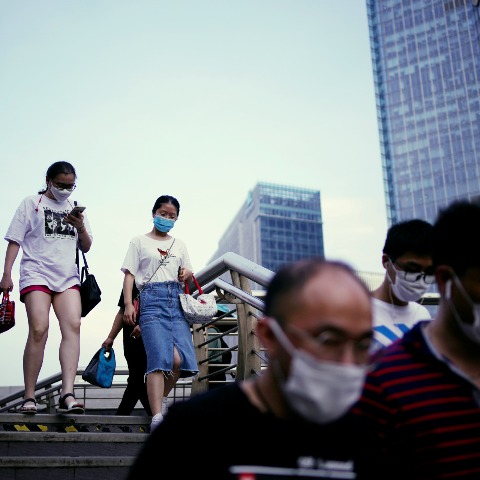



The COVID-19 pandemic is, as scientists suggest, highly associated with a zoonotic virus and such a crisis may become more frequent in the future due to climate warming, according to a top economist.
According to the World Health Organization, most of these types of viruses in the coronavirus family have an origin in animals. The COVID-19 virus is a new virus in humans. The possible animal source of COVID-19 has not yet been confirmed but research is ongoing.
Robert Engle, 2003 Nobel Prize laureate in Economics and a professor at New York University, made the comment during a video forum organized by the University of Science and Technology of China on Tuesday.
The economist said the warning has been made by many scientists and he believes it to be so. He worries that the pandemic could be just a "dress rehearsal" to more crises.
This pandemic is highly associated with a zoonotic virus and with climate warming, such crises may become more frequent as animals migrate, said Engle, before he moved on to his lecture's focus on financial issues.
"Once the pandemic is over, the climate problem will still be here. However, we are losing time to transition to a low carbon economy," he said.
As Engle has observed, much of the slowdown in social distancing reduces carbon emissions.
"Air and car transportation are way down. Industrial emissions are probably also down since only 'essential' firms are operating," he said, adding that humankind could learn to be sustainable.
He said "the drop in demand and boost in supply have driven oil prices to very low levels potentially eroding the cost advantage of renewables. It will lead to financial instability and fossil fuel sector bankruptcies."
Such a hard situation could be a good opportunity to invest in low carbon technology, while a lot of bailout money has been put into the fossil fuel industries, according to Engle.
Answering a question about Chinese enterprises' overseas marketing, the economist said "the fact is globalization cannot go away, it's part of the economic fabric of the whole globe".
"Just because one president and one party felt like 'we are not getting a good deal from China' doesn't mean that globalization is not gonna come back," he said, adding that "it is really bad to see a lot of negative things have been said about China".
He said the US and China are on different paths regarding the spreading of the pandemic. "If we would spend a little more time watching what you have done in China, we will be a little smarter about it," he said.
"I don't know whether the US administration has actually looked at the way you've managed the contacts, and the testing, all sort of things, so much more about who is vulnerable, who isn't, who has contact with whom, we could do that," he added.
The National Health Commission of China said the country now can offer 3.78 million nucleic acid tests for COVID-19 every day and had carried out 90.41 million nucleic acid tests as of June 22.
If you have any problems with this article, please contact us at app@chinadaily.com.cn and we'll immediately get back to you.